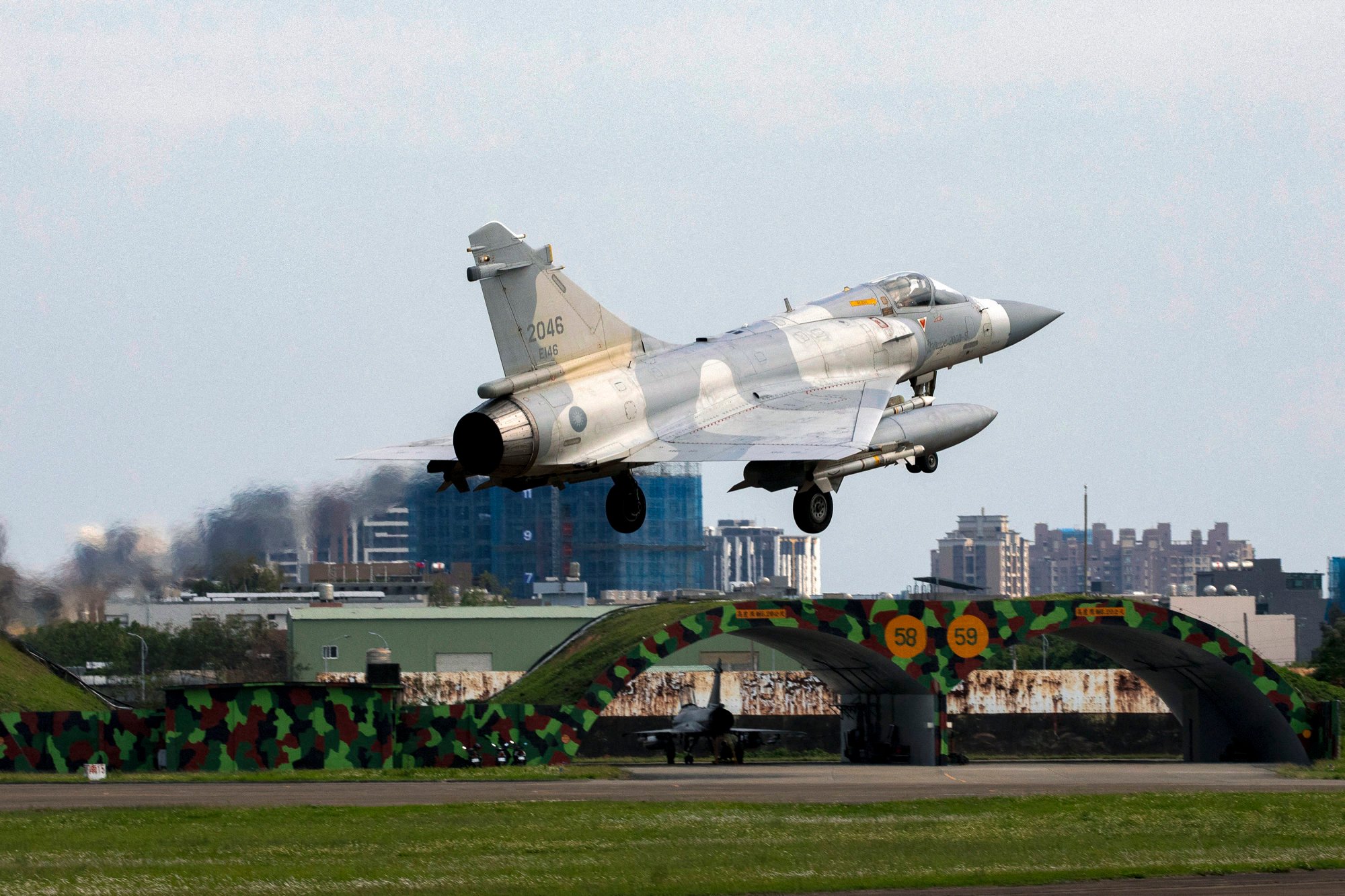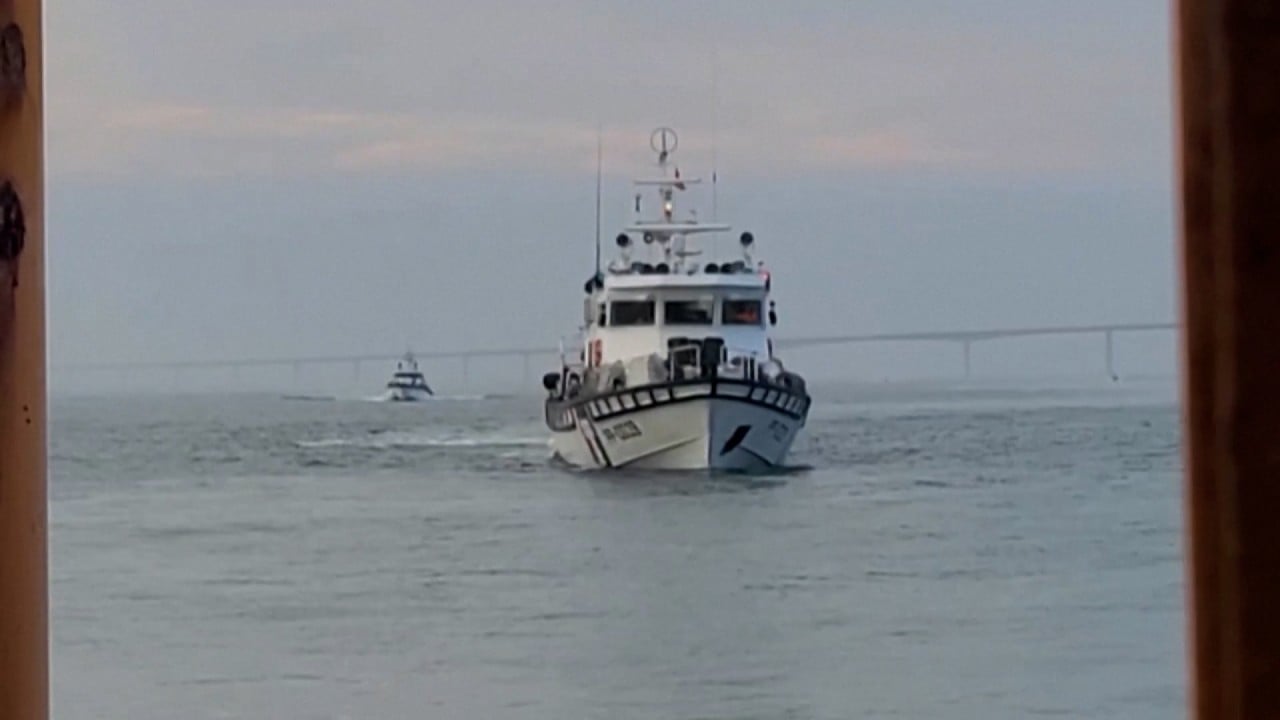
Beijing hits back after Biden White House seeks US$100 million to boost Taiwan’s cross-strait deterrence
- Request for 2025 budget is ‘historic investment in Taiwan’s security’, US State Department says, as Pentagon seeks US$500 million in arms support
- Foreign ministry in Beijing ‘strongly opposes’ US efforts to arm Taiwan, vows ‘resolute measures’ to safeguard sovereignty
The stand-alone request for the 2025 budget was a “historic investment in Taiwan’s security … [to] strengthen deterrence and maintain peace and stability across the Taiwan Strait”, the US Department of State said.
In a separate funding request, the Defence Department sought US$500 million under the US Pacific Deterrence Initiative to replenish weapons that would help self-ruled Taiwan “address aggression in the region”, according to budget documents released in Washington on Monday.
In a sharply worded response on Tuesday, the foreign ministry in Beijing said it “strongly opposed” US efforts to arm Taiwan.
“China will take resolute measures to firmly safeguard its own sovereignty and territorial integrity,” ministry spokesman Wang Wenbin said.
Beijing views Taiwan as part of its territory, to be reunited by force if necessary. The US, like most countries, does not recognise the island as independent but is opposed to any forcible change to the status quo and is committed to arming it.
The funding requests are part of a US$7.27 trillion budget put forward by the government of US President Joe Biden for the 2025 financial year.
It includes a proposed US$895.2 billion for military and security spending, with stronger Indo-Pacific defence and deterrence against Beijing among its focuses.
The State Department said the US$100 million sought would also help “strengthen and expand Taiwan’s collaboration with international partners”.
The sum would be a dedicated funding item for Taiwan, deputy secretary of state for management and resources Richard Verma said in Washington.
‘China will eventually, inevitably be reunified’ with Taiwan, Xi tells Biden
“We break out Taiwan for the first time and have a specific line item for it. It reaffirms our commitment to security assistance for Taiwan and a free and open Indo-Pacific. I think it’s very clear,” Verma was quoted as saying by Taiwan’s semi-official Central News Agency.
The funding was “traditional security assistance” for the island, Verma said. “There’s also IMET [International Military Education and Training] assistance … you have to read that together with the totality of our assistance in the Indo-Pacific Strategy and the new mandatory funding we’ve also added.”
IMET is a programme that promotes rapport between the US and foreign militaries to build future alliances.
Taipei thanked the Biden administration for the stand-alone request for military assistance.

“This once again demonstrates the high level of importance the US places on Taiwan’s national defence needs while assisting us in strengthening our defence and deterrence capabilities,” Taiwanese foreign ministry spokesman Jeff Liu said. He also thanked the US for its long-time security commitment to the island.
The State Department request for Taiwan comes as the island faces scaled-up threats from the People’s Liberation Army, which has increased drills and fly-bys in the region.
She has also prompted fury in Beijing by promoting closer ties with the United States, Taiwan’s informal ally and main weapons supplier.
Taiwan detects 14 mainland Chinese planes performing ‘combat readiness patrols’
Lai, also of the DPP, has been branded by Beijing as an “obstinate separatist” and “troublemaker” who will bring war to Taiwan.
Beijing had repeatedly warned Taiwanese voters against electing Lai in the lead-up to the January 13 presidential election, and labelled the result as “unacceptable”.
Meanwhile, the funding sought by the US Defence Department to top up Taiwan’s weapons stocks will come through the Presidential Drawdown Authority, which ships existing Pentagon arms stocks overseas.
The funding request, also the first Taiwan-specific proposal from the Pentagon, would help “address aggression in the region and ensure continued support to our allies”, the department said in its budget documents.


